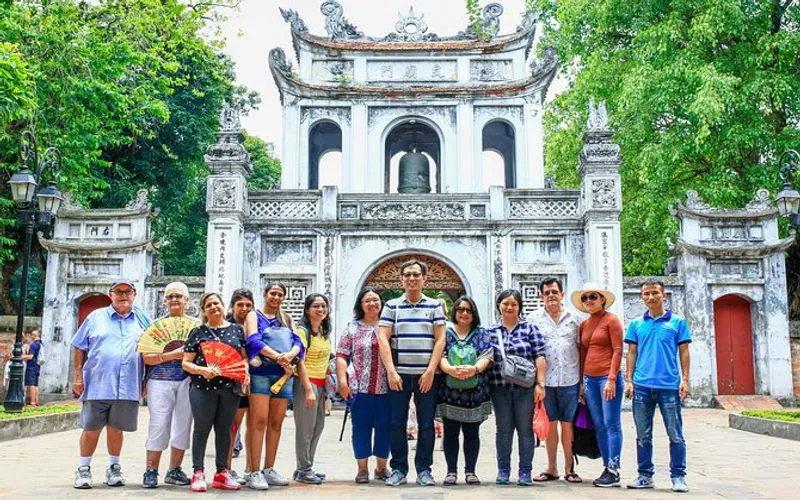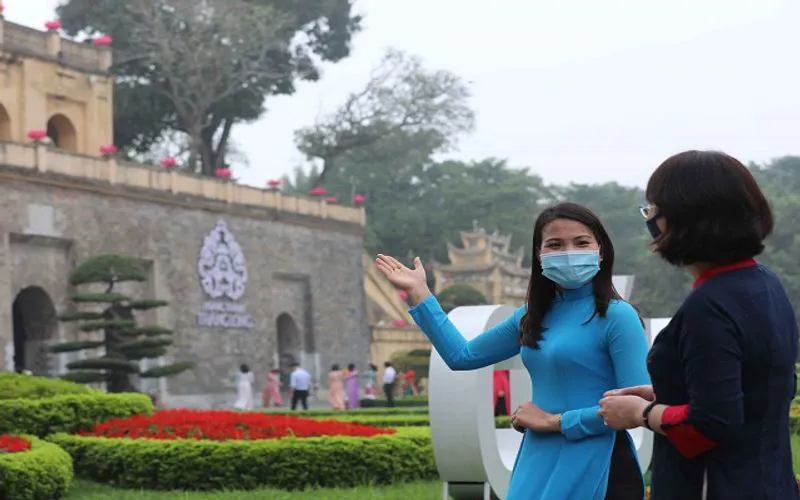Vietnamese tourist guides find it hard to benefit from Government relief package
It is necessary to be flexible in stipulating conditions for freelance tour guides to benefit from the package.
Tourism has been one of the hardest pandemic-stricken sectors since the Covid-19 pandemic broke out in Vietnam early last year. Therefore, tour guides are beneficiaries of the Vietnamese Government’s financial support package, which aims to help Covid-19-hit businesses and people.
However, vague terms of disbursement have made the package inaccessible to thousands of tour guides and many people in need have complained about complicated procedures preventing them from getting the support.
Under the Prime Minister’s Decision No.23/2021/QD-TTg dated July 7, tour guides, among the vulnerable people, are entitled to a benefit of VND3.71 million (US$161.25) each.
To access the financial support, they are required to show their valid tour guide cards granted prior to May 1, and a valid labor contract with travel firms.
A Hanoi city tour before the Covid-19 pandemic broke out in Vietnam. Photo: Nguyen Viet Huy |
According to Nguyen Viet Huy, a freelance tour guide in Hanoi’s Nam Tu Liem District, travel firms have two kinds of contracts, including long-term and short-term ones.
The short-term contract is valid only for one to ten days. After completing tours, tour guides have to give back the labor contracts and bills to travel firms to get payment, Huy said.
Meanwhile, the last time inbound tour guides worked with foreign travelers was in March 2020, before the border closure. So, there is no way they could have a valid labor contract for relief benefit assessment, Huy added, showing his anxiety.
“It is inconvenient to contact travel firms for the past labor contracts because the travel firms serving inbound travelers have suspended operation,” Huy told The Hanoi Times.
Huy said he was told that only those who have long-term labor contracts, or members of tour guide associations are eligible for support.
Most freelance tour guides are hired to work as collaborators for travel firms and work under short-term labor contracts. If they are not members of tour guide associations, this means that they won’t get support.
Vietnam is battling a more widespread outbreak since late April, resulting in the closure of tourist destinations.
This photo was taken before the fourth wave of the Covid-19 outbreak hit the city in April. A tour guide introduces the Thang Long Imperial Citadel in Hanoi. Photo: Viet Linh |
A report by the Vietnam Tourism Association (VITA) revealed up to 90% of tourism companies are in dire straits. Most of these businesses’ employees are taking unpaid leave.
In early July, the Vietnamese Government mulled another pandemic support package to aid those affected by Covid-19 with VND26 trillion ($1.13 billion).
However, procedures should be more flexible so that the Government’s financial support can reach the right people and tour guides can overcome difficulties, according to the Director of the Vietnam Tourism Service Investment Joint Stock Company, Phi Thi Huong Quynh.
It is necessary to be flexible in stipulating conditions for freelance tour guides to benefit from the relief package. For example, a six-month contract would be enough for a tour guide to get the benefit, Quynh suggested.
“However, tour guides themselves admitted that the strict requirements are necessary, so as thousands of those who have tour guide cards but don’t practice in reality would not profiteer from the package,” Quynh told The Hanoi Times.
These people no longer work as tour guides, but they still keep the cards. They could be office workers, tour coordinators and tour sellers of travel firms, or officials of regulatory agencies. If these people also get the support, the State’s money will go to the wrong subject, Quynh noted.
She stressed that it would be unfair for tour guides with real career practice if the people who just stay in the office can also receive the support. Therefore, departments and local authorities need to coordinate with the VITA to give humanistic support to the right beneficiaries.











